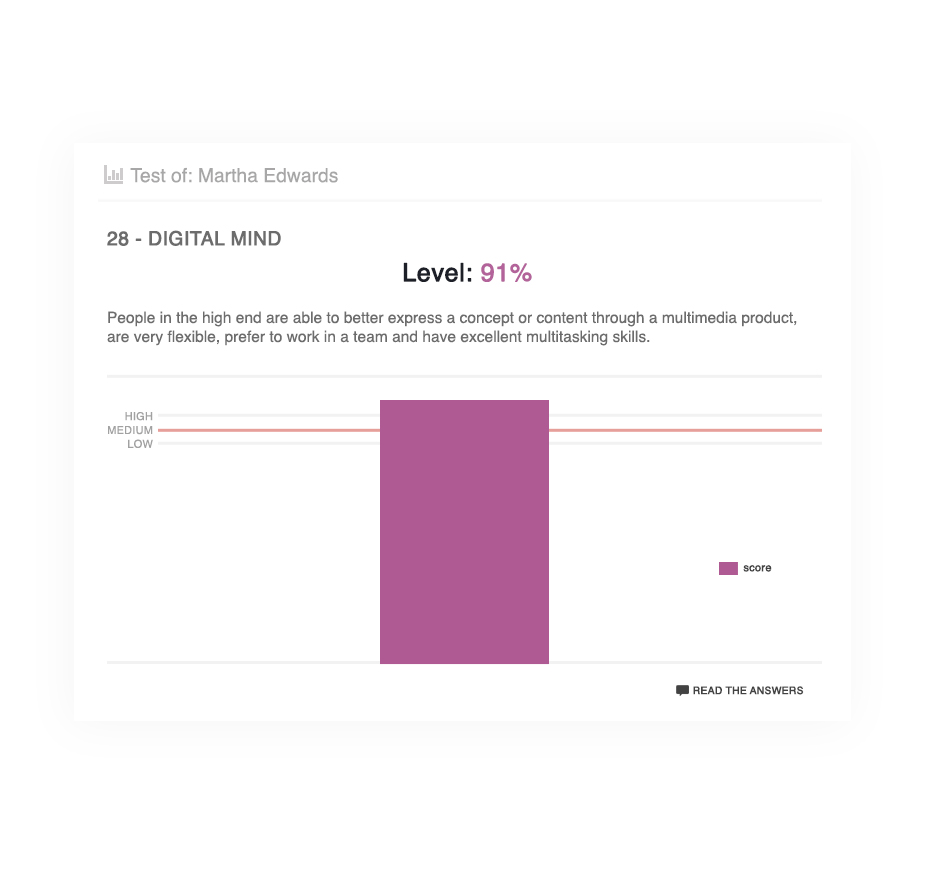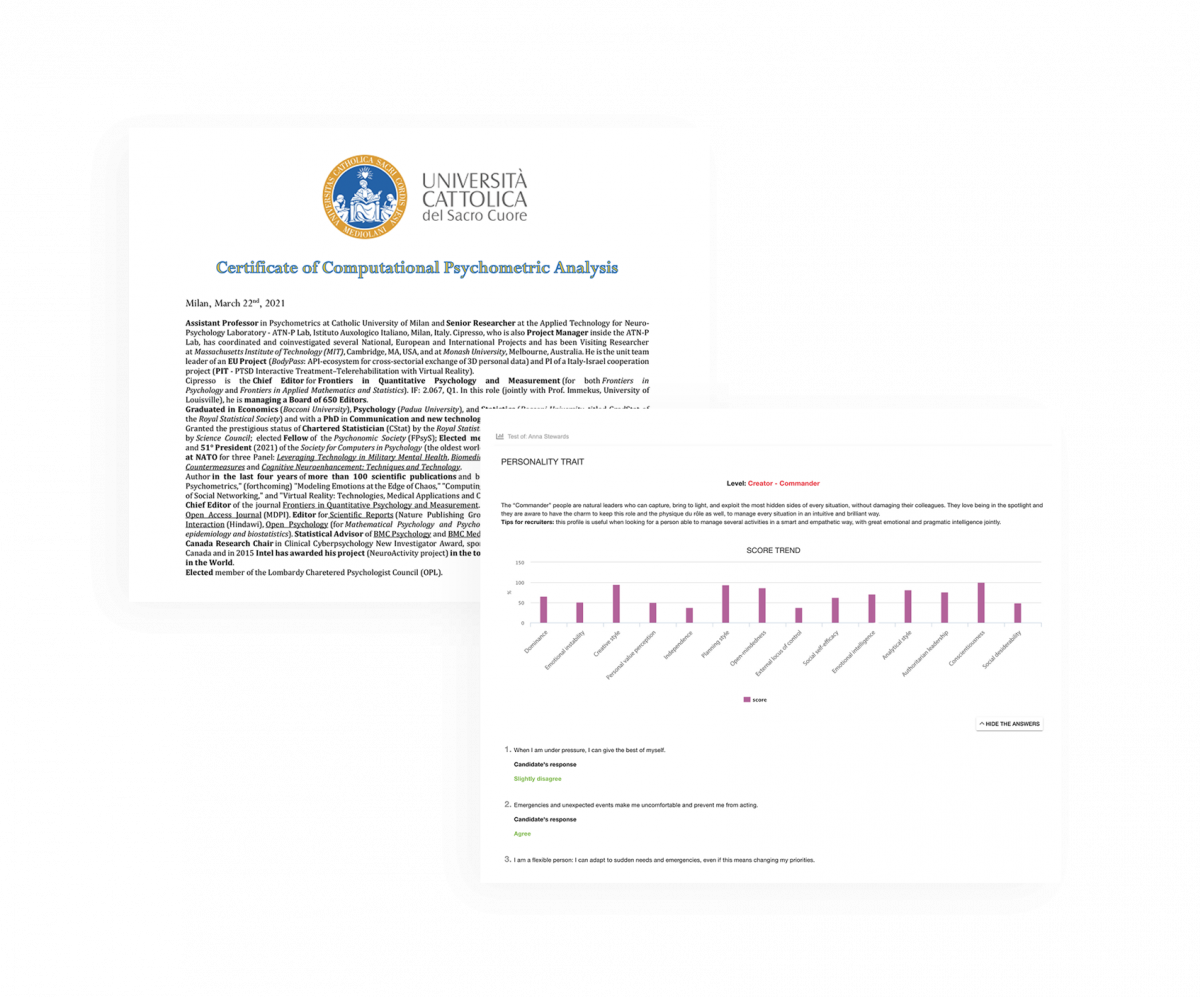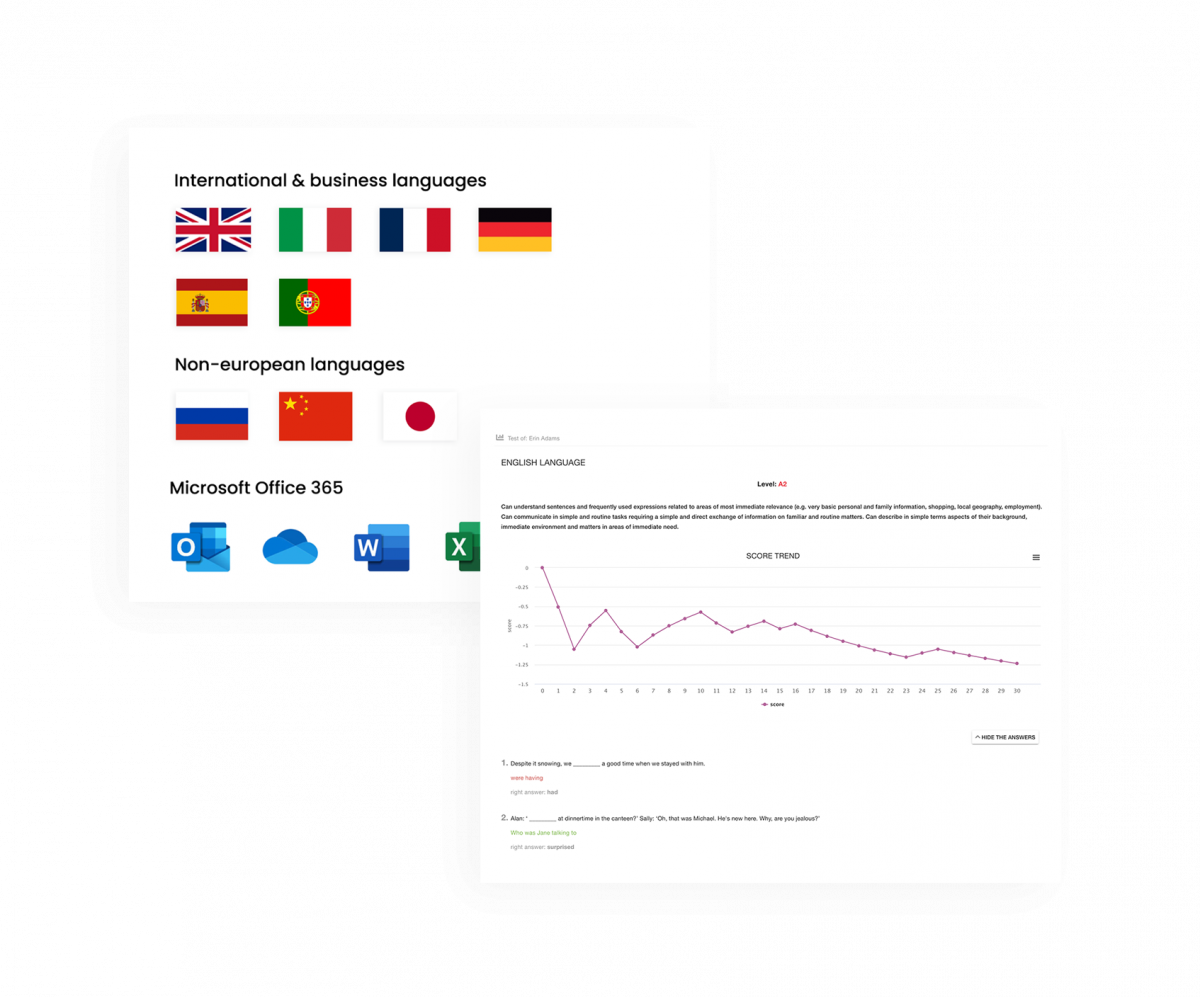Soft skills assessment tests
| Reference products | SoftskillLab |
| Release month | January 2021 |

1. What are soft skills?
Soft skills are the set of competences that are not directly linked to a specific task. They are necessary in any role and job position as they refer to the relationship of an employee with any other member of the organization and the context in which he/she is located.
It is important to map the soft skills of candidates and employees in order to understand how well they are aligned, or potentially aligned, with a job role and with the structural and organizational context in which they find themselves, or are intended to find themselves.
It is possible to work on soft skills to build ad hoc development and growth paths. SoftskillLab is a valuable tool for monitoring the personal growth of employees and for planning targeted and effective training events.
1. Ability to delegate
Ability to delegate powers and tasks from higher to lower levels without diminishing managers’ responsibilities.
2. Life stress management
Ability to cope with events, situations, experiences that create excessive stress.
3. Authoritative leadership
Those who owns this skill have a positive influence on their team.
3. Ability to set priorities
Giving a different order and degree of importance to one’s own aims and objectives.
4. Social stress management
Ability to manage relationships with unknown people and to speak in public with little difficulty.
6. Ability to manage professional emergency
Ability to think of and apply the best strategies to achieve objectives even in unforeseen conditions.
10. Politeness
Being polite involves respecting the rules that apply in an organizational or social context.
11. Emotional intelligence
Ability to recognize and manage one’s own emotions and those of others, making the most of relationships and situations.
12. Bicultural mind/International mind
Ability to connect easily with people of different nationalities, changing perspective.
13. Digital mind
The digital mind processes and learns information, with a focus on results rather than on the techniques used to achieve them.
14. Analytical skills
Ability to gather and analyse information, solve problems and make decisions. Analytical thinking facilitates the decision-making process.
15. Proactivity
Ability to actively adapt to new developments in order to achieve personal and/or organizational goals and express one’s own thoughts.
16. Mental flexibility
Having a flexible mind allows adaptation of individual thinking and behavior.
17. Empowerment
Ability to take responsibility for one’s own actions, self-awareness and control over one’s choices, decisions and actions.
18. Problem solving skills
Problem solving skills involve awareness, mental and behavioral flexibility.
19. Decision making
Ability to analyze the situation from different perspectives, and take responsibility for choosing one strategy over another.
20. Overall creativity
A creative person is curious, intuitive, open-minded and flexible and is able to imagine solutions and produce novelties.
21. Autonomous time management
Autonomous time management allows you to implement productive and effective strategies to achieve your goals.
22. Critical thinking
Through critical thinking, different perspectives are considered and a new level of knowledge is sought.
20. Empathy
The ability to experience a situation from the other person’s point of view, enabling one to understand their feelings, ideas, wishes and emotions.
24. listening
Abilità di vivere una situazione dal punto di vista dell’altra persona, che permette di comprenderne sentimenti, idee, desideri ed emozioni.
25. Team work
Good teamwork requires communication, listening and discussion skills and mutual trust.
3. What are the tools for assessing soft skills?
Soft skills can be identified by asking specific questions during the interview phase with the candidate or employee, with personality tests or with delayed video interviews.
Arca24’s SoftskillLab is a tool, based on the collaboration with Università Cattolica di Milano of Milan, which offers 26 psychological tests that allow the recruiter to make the soft skills assessment process more effective.
These adaptive tests are indeed more specific than the personality tests available on the market. The results are easy to interpret, even by non-specialists, and allow the assessment of many candidates at the same time thanks to the cloud-based system.
4. How important are soft skills within a selection process?
Soft skills are increasingly at the core of companies’ needs. Today, it is no longer enough to be an expert in one’s own field, i.e. to have mastered hard skills, but it is necessary to be able to work with others people, to adapt to new business contexts and to the changes in the labor market. With SoftskillLab, it is possible to assess these transversal skills in order to build personalized development and growth paths.
Company
Arca24 is an HR Tech Factory specialised in the development of cloud software for the human resources sector.
Reference products

SoftskillLab – Online psychological testing platform
SoftskillLab is an online psychological testing platform that allows you to make an effective assessment of candidates and employees.

ExaminLab – Hard skills testing platform
ExaminLab is an online adaptive testing platform (based on “CAT” technology: Computerised Adaptive Tests) for the assessment of technical and language skills.

CVideo – On-demand video interviews
CVideo is a web-based platform for deferred video interviews, which enables a digital selection of candidates.




